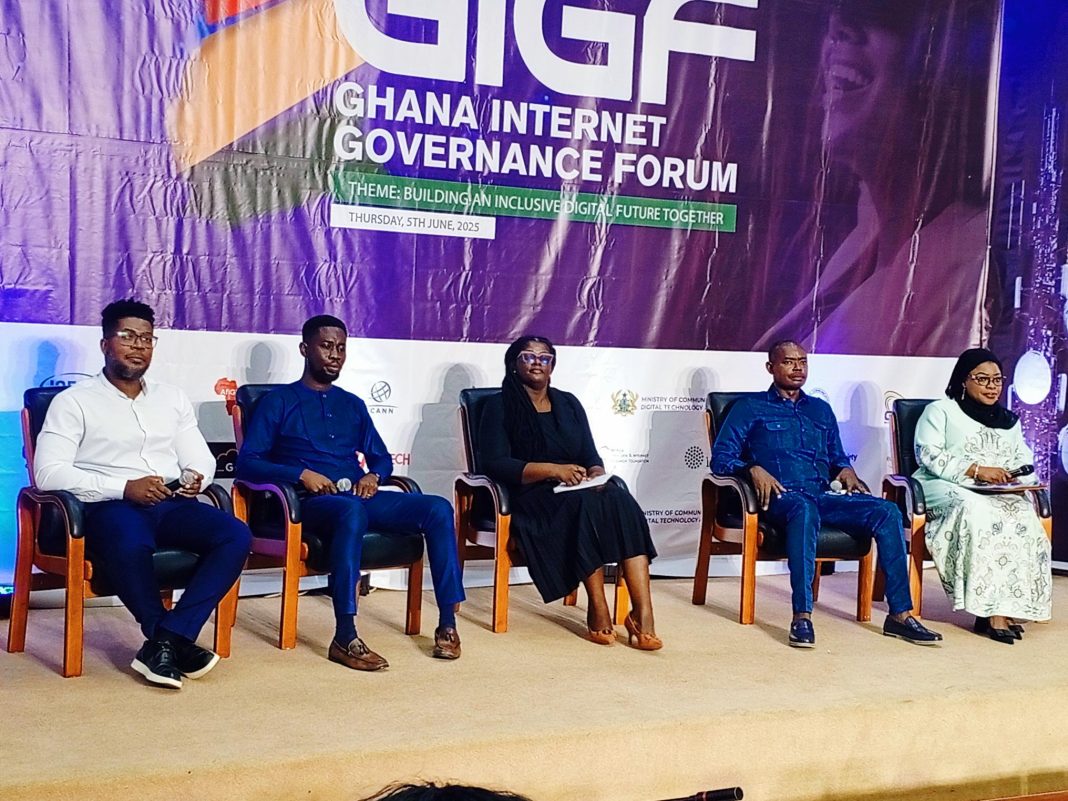By Patrick Ofoe Nudzi
Accra, June 9, GNA – Stakeholders at the 2025 Ghana Internet Governance Forum (Ghana 2025 IGF) have called for education and awareness creation on the dangers of disinformation and misinformation as well as proper application of the laws to curb the menace.
They said Ghana did not need new laws and selective enforcement, which seems to be happening in combating mal-information, misinformation and disinformation rather a multifaceted approach where the laws were justly applied to everyone.
Speaking during a panel discussion on the topic: “Addressing Disinformation and Misinformation
while upholding Human Rights in Ghana,” Madam Vivian Affoah, Programme Manager, Digital Rights Programme, Media Foundation for West Africa (MFWA), said enforcement must not be selective and must not vary because of the personality involved.
She said the State would not need new laws as some were suggesting but proper application and enforcement of the laws such as Cyber security Act 2020 (Act 1038), Data Protection Act 2012 (Act 843) and Electronic Communications Act 2008 (Act 775) to control the Internet and social media spaces.
Madam Affoah said all stakeholders, including the State, needed to increase digital and media literacy to a point where all individuals could easily identify fake news, falsehood and could identify that a photo was not real but AI generated photo.
“We are a society that thrives on disinformation and it is on the rise so we need to up our media and digital literacy. We need to do a lot of work to a point where people can identify that this photo is not real,” he said.
Madam Bridget Andere, Senior Policy Analyst at Access Now, a digital security firm, said disinformation and misinformation had been the ‘small gossips’ and rumours people had been engaging in over the years but had been given a rapidly destructive twist by the Internet.
She said fighting the menace had to be done with a multi-faceted approach where adequate platforms were created to engage citizens, educate them and entice them to learn more about the dangers such information posed to the state and individuals.
Madam Andere said though individuals had the rights to express their views and make publications and statements they ought to do so within the remit of the laws, adding that if people’s rights must be limited, the limitations must be legal and necessary.
Mr Garvin Emmanuel Appiah, Chief Executive Officer, DoubleOSEC, a Tech Company, called on tech and digital companies to verify and validate every information before sending it out.
He said though the enactment of laws to regulate the space was not solely the panacea, there was the need to do some amendments to the Cybersecurity Act 2020 (Act 1038) since “the provisions don’t give clear-cut solutions to disinformation and misinformation.”
The stakeholders said the provisions only tackled mal-information as they did not deal with AI generated photos and other related materials.
They said disinformation was putting out deliberate publication or statement while misinformation was doing it unaware that the statement or publication would cause harm or the information was false
Mal-information is information which is based on fact, but removed from its original context in order to mislead, harm, or manipulate, they said.
GNA
Edited by Christian Akorlie
